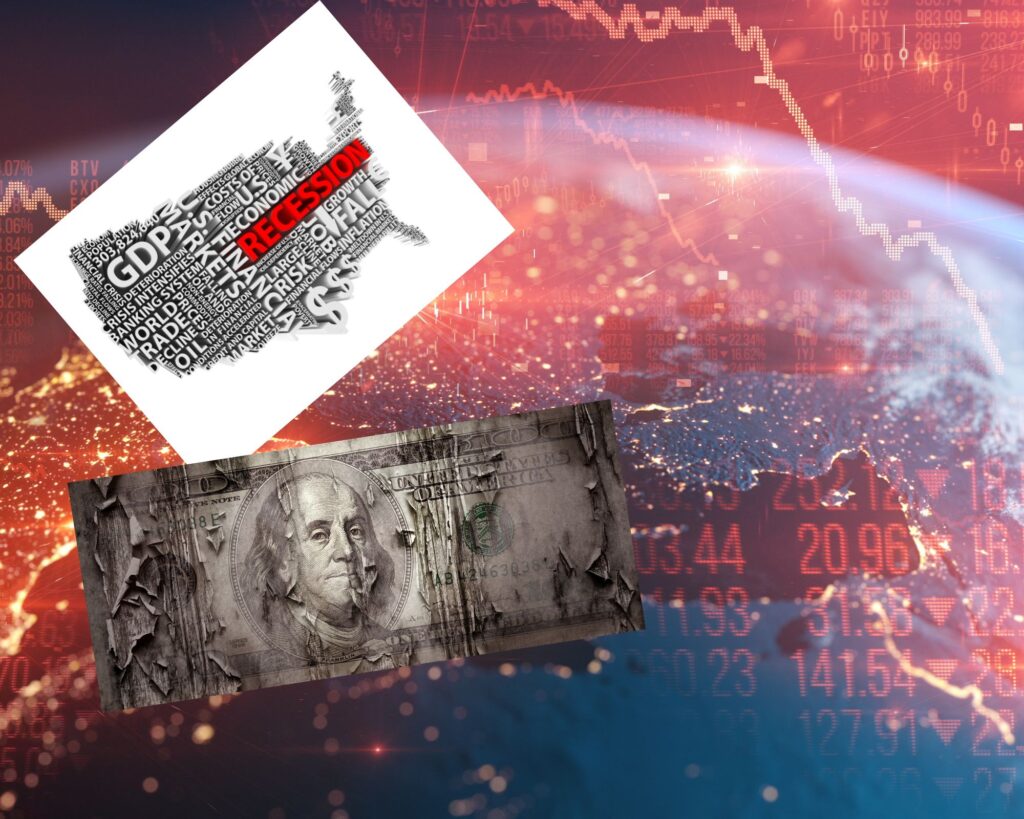
Source : AUN News
The United States, Europe, and China’s economies are all slowing down. The twin crises in the food and energy industries weigh heavily on growth, according to the International Monetary Fund, which issued a warning on Tuesday.
The I.M.F. stated that economic prospects had dramatically worsened in recent months as the war in Ukraine, inflation, and a resurgent pandemic caused suffering on every continent an update of the World Economic Outlook. The world economy could see one of its lowest years since 1970 and a period of severe stagflation if the threat environment persists.
Only two years after the previous recession, the world “may soon be teetering on the edge of a global recession,” I.M.F. chief economist Pierre-Olivier Gourinchas warned in a published blog post alongside the report. Simply put, he said that the outlook for the world economy is “increasingly bleak.”
The I.M.F. revised its estimates for global growth downward from its April projections, forecasting a drop in output to 3.2 percent in 2022 from 6.1 percent in 2018. Next year, G.D.P. is anticipated to decline even more as central banks around the world raise interest rates to combat inflation.
Additionally, inflation is increasing faster and more widely than the I.M.F. had predicted earlier this year. It currently anticipates price increases of 6.6% in developed nations and 9.5% in emerging markets and developing economies.
The Economy Is Losing Steam: 8 Signs
gloomy outlook The American economy is slowing down, raising worries about a looming recession amid stubbornly high inflation, rising consumer prices, and decreased expenditure. Additional eight indicators of impending disaster are listed below:
Customer assurance. Nearly half of respondents to the University of Michigan’s consumer sentiment poll in June said that inflation is lowering their standard of living, which was the lowest proportion in the survey’s 70-year history.
Housing industry. Real estate is less in demand, and new home construction is sluggish. These patterns might persist as interest rates increase and staff has been let go at real estate firms like Compass and Redfin in preparation for a slowdown in the property market.
The I.M.F. stated that “the risks to the outlook are overwhelmingly biassed to the downside.”
The United States’ declining consumer spending power, the impact of Russia’s invasion of Ukraine on Europe’s economies, the property crisis and lockdowns in China, where Beijing continues to take drastic measures to contain coronavirus outbreaks, and the lockdowns in the United States are the causes of the global economic storm.
The I.M.F. emphasized that there is a lot of uncertainty around its estimates and that there may be additional downgrades in the future. The possibility of an abrupt stoppage of Russian gas exports to Europe, the inflation’s obstinate persistence, and expanded Chinese lockdowns were all mentioned as potential risks.
According to this scenario, the U.S. and the euro area would have close to zero growth the following year, which would have a negative ripple effect on the rest of the world, according to Mr. Gourinchas.
The likelihood of a global recession is increasing, the analysis claims. It said that four times higher than usual, the possibility of a recession starting in one of the Group of Seven powerful nations was now close to 15%. The I.M.F. defines a “technical” recession as two consecutive quarters of negative growth, and it said that several signs suggested that the United States was already in one.
According to data that is set to be revealed on Thursday, the U.S. economy expanded modestly or may be contracted in the second quarter of 2022.
To slow the economy and contain rising inflation, the Federal Reserve is anticipated to increase interest rates by three-quarters of a percentage point on Wednesday. Policymakers admit that it will be challenging to achieve the Fed’s goal of a “soft landing”—in which it cools the economy just enough to prevent it from entering a recession.
Before the midterm elections that will decide who controls Congress, President Biden and his Democratic Party are in jeopardy due to the deteriorating economic outlook in the United States and overseas.
Mr. Biden argued on Monday that the American economy was still strong and that the country was not in a recession.
Learn about inflation and its effects on you
I don’t think we’re going to be in a recession, he added, citing the low unemployment rate and expressing optimism that growth will continue even as it slows. “With God’s help, I don’t think we’ll see a recession.”
The I.MF highlighted that due to inflation and the anticipation of increased borrowing costs, G.D.P. in the United States had been less than anticipated in the first half of the year and that private consumption had “much less impetus.”
Despite the I.M.F. downgrading most of the economies, Russia’s economy is now predicted to contract by 6% this year rather than the previously expected 8.5. The International Monetary Fund (I.M.F.) said that Russian oil and non-energy exports were performing better than anticipated and that Western sanctions were not biting as hard as predicted.
According to the I.M.F. report, a lower-than-expected deterioration of the labor market and mitigation of the impact of the sanctions on the local financial sector are contributing to domestic demand’s resilience.
Analysis by : Advocacy Unified Network
